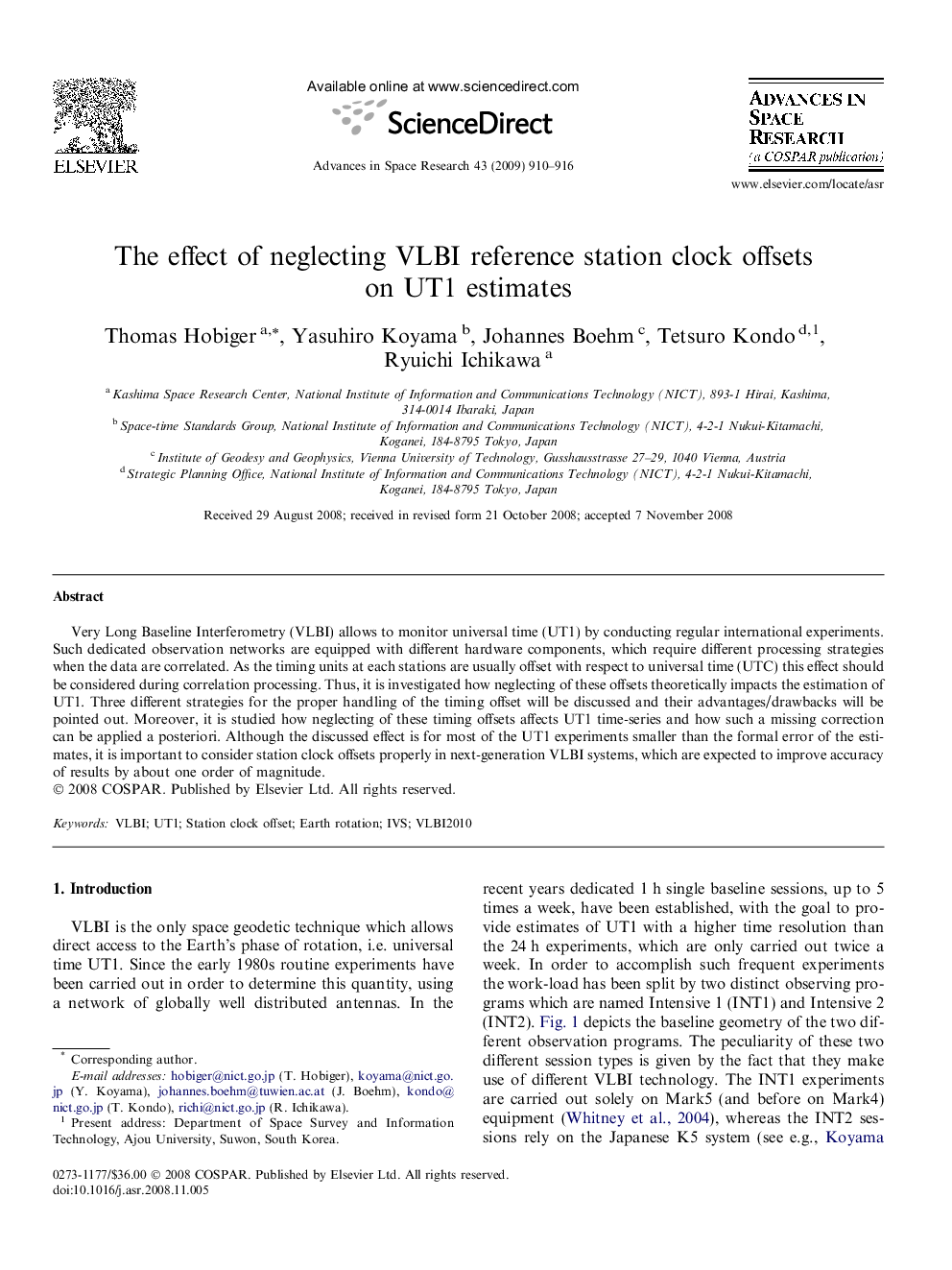| Article ID | Journal | Published Year | Pages | File Type |
|---|---|---|---|---|
| 1767228 | Advances in Space Research | 2009 | 7 Pages |
Very Long Baseline Interferometry (VLBI) allows to monitor universal time (UT1) by conducting regular international experiments. Such dedicated observation networks are equipped with different hardware components, which require different processing strategies when the data are correlated. As the timing units at each stations are usually offset with respect to universal time (UTC) this effect should be considered during correlation processing. Thus, it is investigated how neglecting of these offsets theoretically impacts the estimation of UT1. Three different strategies for the proper handling of the timing offset will be discussed and their advantages/drawbacks will be pointed out. Moreover, it is studied how neglecting of these timing offsets affects UT1 time-series and how such a missing correction can be applied a posteriori. Although the discussed effect is for most of the UT1 experiments smaller than the formal error of the estimates, it is important to consider station clock offsets properly in next-generation VLBI systems, which are expected to improve accuracy of results by about one order of magnitude.
